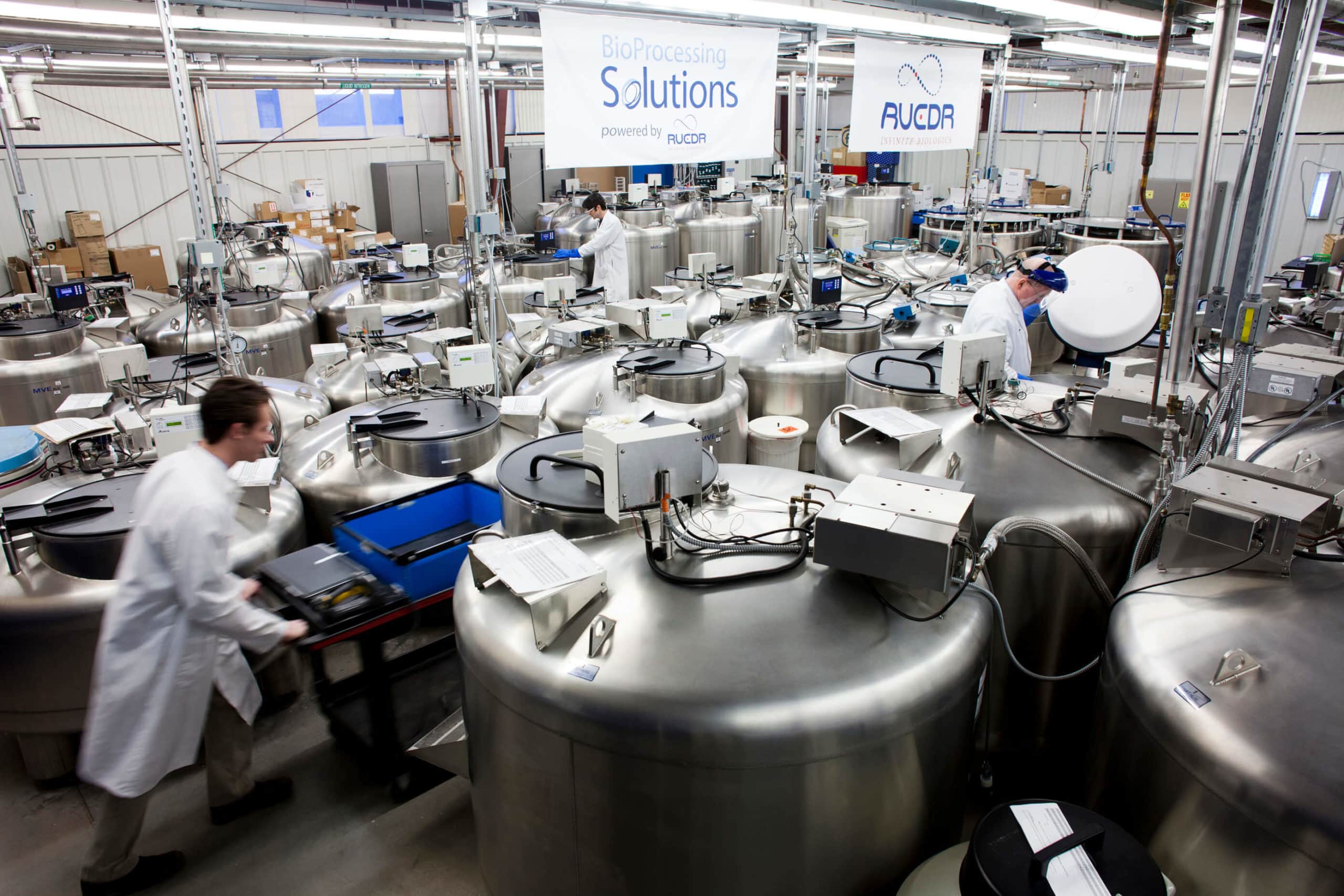New coronavirus test developed at Rutgers can screen thousands and it’s as simple as a spit in a tube

In what could represent a major advance in the fight against coronavirus, a Rutgers University research lab says it has developed a new test using existing automated technology able to analyze tens of thousands of patient samples each day to detect COVID-19.
At the same time, RUCDR Infinite Biologics — a unit of Rutgers’ Human Genetics Institute of New Jersey — submitted an emergency use authorization request for a saliva collection method that would allow for far broader screening than what is now even possible.
“The chemistry and the test are out there,” said Andrew Brooks, CEO and director of technology development at RUCDR. “We can start operating when we get federal approval.”
The saliva test itself will be made available to the RWJBarnabas Health network, which has partnered with Rutgers University, and includes Rutgers Robert Wood Johnson University Hospital and University Hospital in Newark.
New Jersey Health Commissioner Judith Persichilli said the test could have a major impact on how the state fights the coronavirus.
“If approved, this would be a game changer in what we know about Sars CoV 2 and how we go forward controlling the spread of this virus,” she said.
It marks the latest in a growing arsenal being deployed in an effort to test greater numbers of individuals.
New Jersey this week was selected as one of the early states to use new testing technology developed by Abbott Labs of Illinois, able to detect coronavirus within five minutes. It will be used to test people in Bergen County — the county hardest-hit by COVID-19.
Abbott recently received emergency use authorization from the U.S. Food and Drug Administration to utilize the test, which runs off a lightweight molecular testing unit. The device, about the size of a small toaster, is already used in many doctors’ offices, urgent care clinics and hospitals to provide rapid detection of infectious diseases, such as influenza and strep throat.
New Jersey health officials reported Wednesday the state now has at least 22,255 cases of the coronavirus, which has claimed 355 lives. It marked the highest single-day increases in both cases and deaths since the outbreak began.
The science behind the new Rutgers test is based on a laboratory technique that makes millions of copies of the COVID-19 nucleic acid from a single sample.
Typical hospital labs can run 20 to 30 samples a day, said Brooks. The new technology can potentially process tens of thousands of samples a day, and do it quickly.
“It’s highly automated,” he said.
But beyond the automation, the genetic testing of saliva samples will make a huge difference in how many people can be checked for viral infection because far more samples can be collected.
Tests now being performed in New Jersey as well as across the country involve the use of a nasal or throat swab to obtain a sample used to determine whether someone is infected, with results available to providers within three days.
Judith Lightfoot, chief of infectious disease at Rowan University, said if it holds up to be effective, the Rutgers test represented another avenue to take pressure off the state’s overall testing program, as well the Abbott test, which she said can also handle large number of tests, and will greatly cut down on how much time it takes to get results.
“Everything is a help,” she said. “This seems like something people could do in their homes.”
The approval of saliva testing would allow health officials to expand screening of the population far beyond what is now possible, without the need of a medical provider to take the sample — by simply having someone spit into a tube.
That will allow testing of anyone — even those who are asymptomatic — without the current concern for scarce collection supplies that has now essentially limited most testing in the state to those who doctors already suspect are infected with the virus.
Epidemiologists and other health experts said widespread testing for the virus remains critical if the state is going to get ahead of the epidemic. That is not happening now. Despite the opening of testing sites across the state, residents complain they cannot be screened, even when exhibiting clear symptoms of COVID-19.
Brooks, who is also a professor in the university’s Department of Genetics, said extracting the virus RNA from saliva is equivalent, or may be even more sensitive than taking it from a swab sample, and greatly cuts the risk to health care workers of possible contamination and infection.
Officials said the rapid deployment of the new test throughout the state was the result of a partnership between RUCDR and Accurate Diagnostic Labs, the region’s largest independent and in-network diagnostic laboratory. ADL already had a relationship with Rutgers, providing reference lab services to facilitate ongoing clinical trials, and enabled RUCDR to fast-track the validation and verification of new testing methodologies, including saliva, for COVID-19.
“We can accept hundreds to thousands of samples for analysis per day now and potentially will be able to test tens of thousands of samples daily in the next several weeks,” said Brooks.